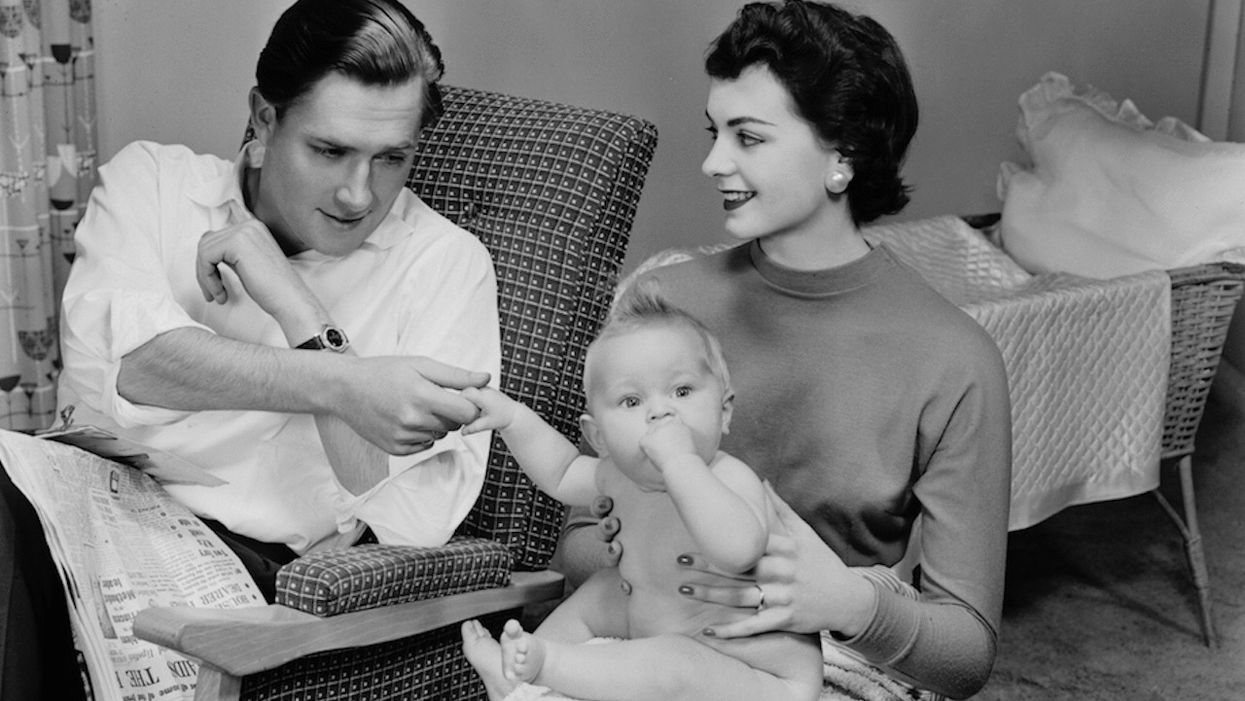
Photo by SSPL/Getty Images

'It's in the interests of women and men, our economy, and society that advertisers steer clear of these outdated portrayals'
Advertisements that depict "harmful gender stereotypes" — such as women who can't park cars and men who can't change diapers — are now officially banned in the UK.
The new rule from the Committee of Advertising Practice — the regulator tasked with writing UK advertising codes — states that ads "must not include gender stereotypes that are likely to cause harm or serious or widespread offense." The rule applies to broadcast and non-broadcast media, including online and social media, according to the Advertising Standards Authority, CAP's sister organization.
The ASA conducted a review of gender stereotyping and "found evidence suggesting that harmful stereotypes can restrict the choices, aspirations, and opportunities of children, young people, and adults"; its findings were announced last year — and advertisers were given until this year to come into compliance.
The ASA added that it now will deal with complaints "on a case-by-case basis and will assess each ad by looking at the content and context to determine if the new rule has been broken."
According to the ASA, the following could be a problem now:
"Our evidence shows how harmful gender stereotypes in ads can contribute to inequality in society, with costs for all of us," ASA CEO Guy Parker said. "Put simply, we found that some portrayals in ads can, over time, play a part in limiting people's potential. It's in the interests of women and men, our economy, and society that advertisers steer clear of these outdated portrayals, and we're pleased with how the industry has already begun to respond."
Those who refuse to comply with the updated codes, which is rare, could face sanctions from the ASA.
What's the background?
The ASA was criticized in 2015 for not banning a controversial Protein World advertisement featuring a thin, bikini-clad woman along with the text, "Are you beach body ready?" Despite receiving over 300 complaints, the ASA allowed the ad to remain.
Sexist adverts to come under scrutiny - BBC Newsyoutu.be
However, the ASA said evidence doesn't show that gender stereotypes are always problematic — and the new rule won't be banning such ads completely.
The following scenarios are allowable, according to the ASA:
CAP will review the new rule after a year to make certain it's "meeting its objective to prevent harmful gender stereotypes," the ASA said.